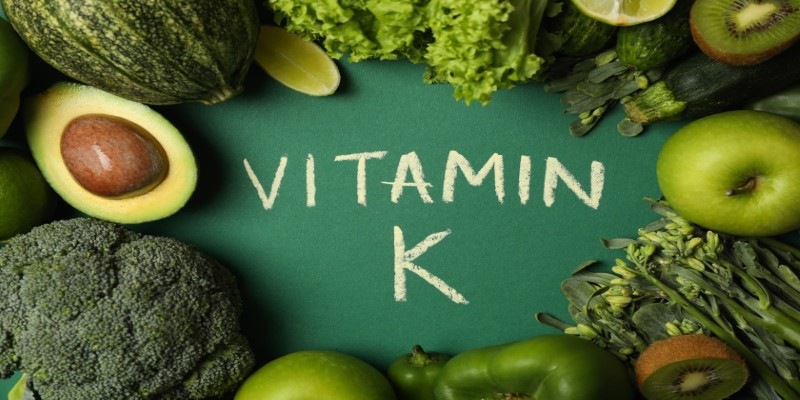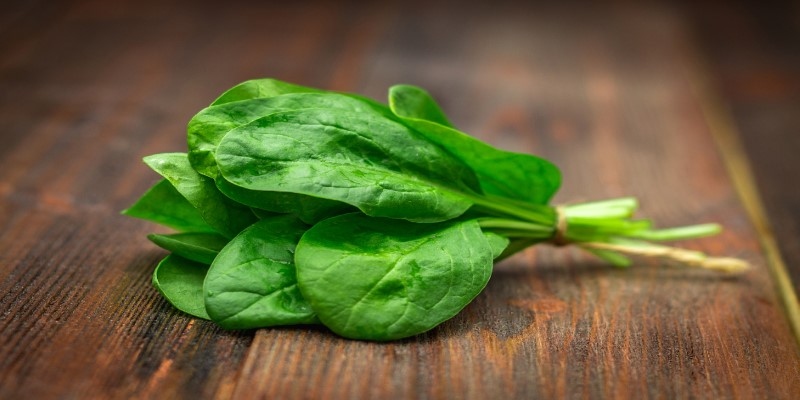Top Foods That Support Healthy Blood Clotting Naturally
Mar 13, 2024 By Madison Evans
The intricate dance of various bodily processes often goes unnoticed regarding our health. One such vital function is blood clotting, a natural defense mechanism that prevents excessive bleeding when injuries occur.
While medications are available to aid this process, our dietary choices play a significant role in supporting the body's innate ability to clot blood effectively. This article will unravel the secrets of natural foods contributing to a robust blood clotting system.
Understanding the Clotting Process
Before we explore the natural foods that aid blood clotting, we must grasp the basics of the clotting process. When a blood vessel is injured, several steps occur to staunch the flow of blood:
Vascular Spasm: The injured blood vessel constricts to reduce blood flow.
Platelet Plug Formation: Platelets, minuscule cellular fragments found in the bloodstream, adhere to the site of injury and emit chemical signals to recruit additional platelets, fostering the process of clot formation, essential for wound healing and maintaining hemostasis, the body's mechanism for stopping bleeding.
Coagulation: A complex cascade of proteins, known as the coagulation cascade, is activated. This results in fibrin, a protein that weaves through the platelet plug, forming a stable blood clot.
Critical Nutrients for Blood Clotting:
Blood clotting is a complex process requiring the coordinated action of various nutrients to ensure effectiveness. Several vital nutrients play pivotal roles in clot formation and maintenance stages. Understanding these nutrients' functions is crucial for promoting optimal blood clotting and overall health.
Vitamin K: Essential for Clot Formation
Vitamin K performs a essential position in blood clotting with the aid of using facilitating the synthesis of clotting elements withinside the liver. These clotting elements, along with prothrombin and fibrinogen, are vital to shape solid blood clots. Leafy green vegetables such as spinach, kale, and Swiss chard serve as excellent sources of vitamin K, ensuring an ample supply for the formation of blood clots.

Vitamin C: Supporting Collagen Synthesis
Vitamin C is vital for wound healing and maintaining the integrity of blood vessels. It promotes the synthesis of collagen, a protein essential for the structure and strength of blood vessel walls. Citrus fruits, berries, and other vitamin C-rich foods support vascular health, reducing the risk of injuries that may require clot formation.
Protein: Building Blocks of Clotting Factors
Protein is essential for synthesizing clotting factors, providing the necessary building blocks for fibrin and other proteins involved in the clotting cascade. Lean protein sources such as chicken, fish, legumes, and tofu ensure adequate protein intake for efficient blood clotting.
Omega-3 Fatty Acids: Anti-inflammatory Support
While Omega-3 fatty acids are renowned for their heart health benefits, they also play a significant role in blood clotting. Fatty fish like salmon, mackerel, and chia seeds are fantastic sources. These healthy fats contribute to a well-balanced clotting mechanism, reducing the risk of excessive bleeding and promoting cardiovascular health.
Natural Foods:
Now that we understand how blood clotting works let's explore the natural foods that can support and enhance this process.
Dark Leafy Greens:
Spinach, kale, and Swiss chard, among other dark leafy greens, boast abundant vitamin K, crucial for proper blood clotting. This essential vitamin facilitates the production of key clotting factors like prothrombin and fibrinogen. By including these nutrient-dense greens in your meals, you can support sufficient vitamin K intake, thereby enhancing the effectiveness of blood clotting processes.

Citrus Fruits:
Citrus fruits such as oranges, lemons, and grapefruits are renowned for their high vitamin C content. Vitamin C is a potent antioxidant and plays a role in collagen formation, a protein essential for wound healing. Additionally, vitamin C supports the health of blood vessels, ensuring their integrity and reducing the risk of injury that may necessitate clot formation.
Lean Protein Sources:
Protein is vital for the synthesis of clotting factors and the maintenance of overall tissue health. Opt for lean protein sources such as chicken, turkey, fish, and legumes. These foods provide essential amino acids for producing fibrin and other clotting proteins.
Garlic: Nature's Clot Buster:
Garlic, known for its aromatic flavor, is also a powerful ally in blood clotting. It contains allicin, a compound that exhibits anti-clotting properties. This natural wonder helps prevent the formation of blood clots, promoting a healthy circulatory system. Including garlic in your meals not only adds a burst of flavor but also enhances your body's ability to maintain optimal blood flow.
Nuts and Seeds:
Nuts and seeds are packed with nutrients that support blood clotting, including vitamin E and omega-3 fatty acids. Vitamin E is an antioxidant that protects cell membranes from damage and promotes overall vascular health. The anti-inflammatory properties of omega-3 fatty acids, which are plentiful in flaxseeds, chia seeds, and walnuts, aid in averting excessive clot formation.
Berries:
Berries like strawberries, blueberries, raspberries, and blackberries are loaded with antioxidants and vitamin C, supporting blood clotting and cardiovascular health. Incorporating a variety of berries into your diet provides a range of beneficial nutrients that contribute to optimal clotting function.
Broccoli:
Broccoli is a cruciferous vegetable rich in vitamin K and other essential nutrients. Including broccoli in your meals significantly boosts vitamin K, supporting the production of clotting factors. Moreover, broccoli contains sulforaphane, a compound with anti-inflammatory properties that may help maintain vascular health.
Fatty Fish:
Abundant in omega-3 fatty acids, fatty fish like salmon, mackerel, and trout have proven to diminish inflammation and support cardiovascular health. Consistently including these fish types in your diet can play a role in preserving blood vessel health and reducing the risk of blood clot formation.
Conclusion:
In conclusion, the role of natural foods in supporting blood clotting cannot be overstated. From vitamin K-rich leafy greens to antioxidant-packed citrus fruits and protein-rich lean sources, these dietary choices offer a holistic approach to nurturing our clotting mechanisms.
Incorporating these foods into our daily meals ensures a steady supply of essential nutrients and promotes overall health and well-being. By embracing the power of natural foods and adopting a balanced diet alongside regular exercise and hydration, we can optimize our blood clotting function and pave the way for a healthier, more vibrant life.







